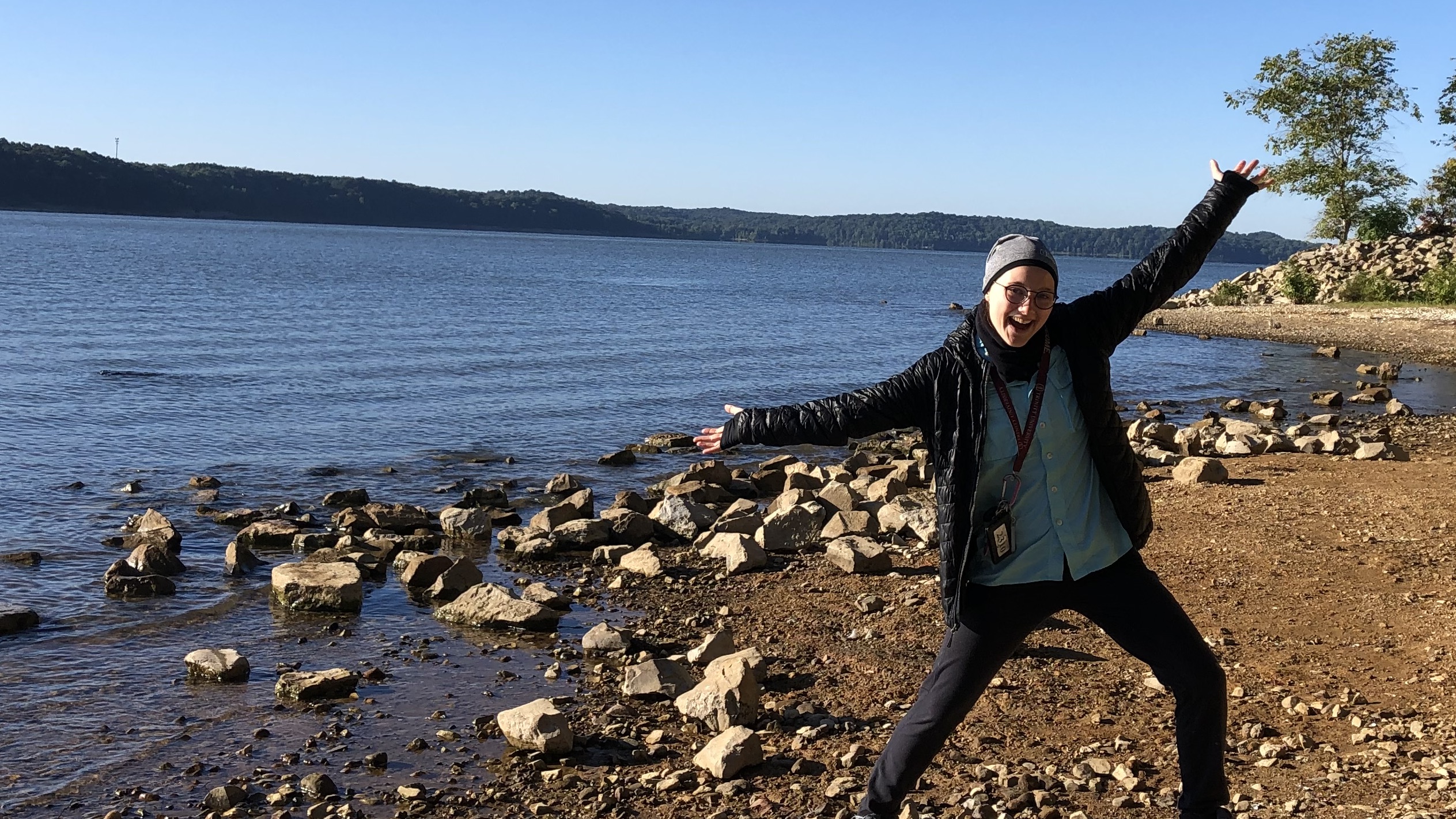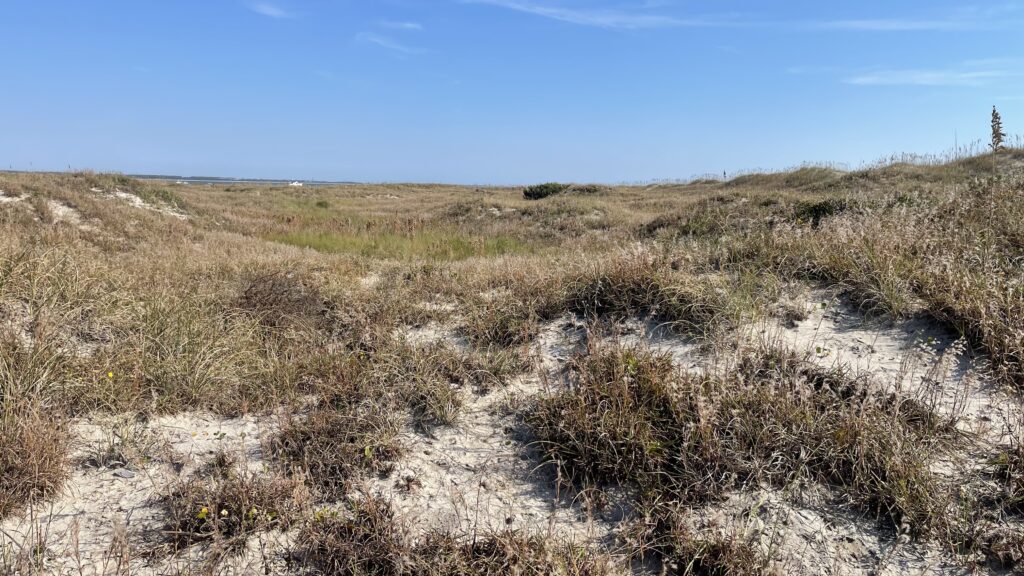Researcher Spotlight – Laura Taylor

2023-24 Global Change Research Fellow
PhD Student, Department of Applied Ecology
Advisor: Dr. Elsa Youngsteadt
Every year the Southeast Climate Adaptation Science Center funds a multi-disciplinary cohort of Global Change Research Fellows representing colleges across NC State University. Here are some highlights about 2023-24 Fellow, Laura Taylor and her applied research.
About You
What do you study?
My program is fisheries, wildlife, and conservation biology and the lab I am in focuses on the urban ecology of invertebrates and plant-insect interactions. I am specifically studying how urbanization and climate change impact the Crystal skipper, a butterfly species that is only found along a 50 km strip of the barrier islands off of North Carolina’s coast.
What (or who) influenced you to go into this field of study?
Growing up, my parents fostered my love of the outdoors by taking my brother and I hiking, camping, and mountain biking in the suburbs of Dallas, TX. This experience of learning to find and appreciate the natural environment within the built environment inspired me to study urban ecology. Additionally, my undergraduate research advisor, Dr. Michele Johnson, encouraged my curiosity of urban ecology and deeply influenced me as a researcher and a person.
What do you think is the most pressing issue related to global change?
I believe the most pressing issue related to global change is the inequity in distribution of resources to combat climate change. We have the technology needed in order to significantly reduce our carbon emissions and yet we are not acting to do so in an equitable fashion.
About Your Research

What is the most important thing that you’ve learned?
It is my first semester in graduate school, so while I have not collected any data yet, I am currently preparing for my first field season along North Carolina’s coast from mid-March to mid-August of 2024. The most important thing I have learned so far is the importance of organization and consistent communication when coordinating several people.
Who will benefit from your research?
My research will help land managers make decisions about conservation actions pertaining to the Crystal skipper. More broadly, this research will help inform the management of range-restricted butterfly species. I also plan to work with the NC Aquariums to develop outreach materials about the Crystal skipper to help engage the local community about this unique species.
How would you describe your research to a 3rd grader?
I am looking into how we are potentially changing the home of a butterfly called the Crystal skipper that is only found in a specific, special area. To help out the Crystal skipper, we need to learn more about it, such as where it goes to find food and how it grows up.
About Your Global Change Research Fellow Experience
How do you expect the SE CASC Global Change Research Fellows Program to impact you and your work?
The Global Change Fellows Program has given me a more complete and complex understanding of how to conduct scientific research within a world that has several competing interests. The program has also introduced me to people who work in a variety of agencies and sectors, who I can connect with throughout my graduate studies and career.
What advice would you give to a student that is interested in getting involved in your field?
Get involved as soon as possible. The more things you try, the better you are at narrowing down what truly interests you and, at the same time, exposing you to a variety of viewpoints and perspectives.
What has been the most rewarding part or your favorite part of being a SE CASC Global Change Research Fellow?
My favorite part of being a Global Change Fellow is learning about other fellows in my program. We all come from very different backgrounds and, I feel that I have learned how to identify and embrace other perspectives when evaluating a situation.
- Categories:
